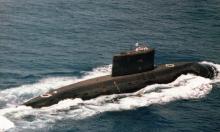Pat Buchanan: No more undeclared wars!
FDR "lied us into war because he did not have the political courage to lead us into it," Rep. Clare Luce blurted out in 1944.
The target of Luce's accusation was a president who by then had entered the pantheon alongside Lincoln and Washington. FDR's courtiers savaged the lady for maligning the Great Man, but few could credibly deny the truth of what she had said.
No matter the justice and nobility of America's cause in World War II, FDR had lied us into war. Even as he soothingly reassured the mothers and fathers of America ("I have said this before, but I shall say it again and again and again: Your boys are not going to be sent into any foreign wars"), he was stoking war, and provoking Germany and Japan.
FDR lied about the secret war he had ordered U.S. warships to conduct against German U-boats. He lied about who fired the first shots when the U.S. destroyers Greer and Kearney were attacked. He lied about having discovered Hitler's plans for the conquest of South America and the Nazification of Christianity. No such plans existed except in the fertile and creative minds of British intelligence.
FDR sent picket ships out into the path of the Japanese fleet in the hope they would be sunk. He gave Lord Halifax secret, but unconstitutional, assurances America would defend His Majesty's colonies in the Pacific. He spurned a secret peace offer from Japan's Prince Konoye and issued a secret ultimatum to Tojo's regime on Nov. 26, 1941.
As Secretary of War Henry Stimson wrote in his diary two weeks before Pearl Harbor, "We should maneuver them into ... firing the first shot." FDR was guilty of impeachable high crimes. But as Field Marshal Moltke told Admiral Tirpitz, as he ordered the German army to invade neutral Belgium in 1914, "Success alone justifies war."
And America succeeded absolutely. And with FDR's death on the eve of total victory in the "Good War" in 1945, people no longer cared how the war had begun. Yet, our politics were poisoned by Roosevelt's mendacity, as it would be by Truman's undeclared war in Korea ("a police action") and by Vietnam, when senators learned they had been deceived in the Tonkin Gulf incident.
Today, America is being stampeded into a new undeclared war, against Iraq. Thus it is a time for truth – a time for Congress to do its duty, and debate and decide on war or peace. We do not need to have our politics poisoned for yet another generation by the mutual recriminations of a War Party and a Peace Party in the aftermath of yet another undeclared war. Questions need answering.
Was Saddam involved in the massacres of Sept. 11? Was he behind the anthrax attacks? Is he harboring terrorist cells of al-Qaida? Is he preparing nuclear or bio-terror weapons to attack us? If the answer is "Yes," let Congress lay out the evidence before the nation and empower the president to take us to war.
Henry Hyde and Joe Biden, chairmen respectively of the House and Senate foreign relations committees, should assume their duty to the nation and history, and assert Congress' rightful role in the decision on war or peace. Both have said that they oppose a war on Iraq. But that is not enough.
On Sunday, National Security Adviser Condoleezza Rice seemed to assert that President Bush had the justification and right to take us to war against Saddam, should he so choose. But where did he get this authority? When did Congress cede it to him, or authorize U.S. attacks on the other Arab states on the War Party's enemies list?
While the United States could launch air strikes on Iraq at any moment, the ground troops needed for an invasion are not in place. And given the halving of U.S. forces since Desert Storm, it would take months before they are ready to march – time enough for reasoned debate.
Indeed, the semi-hysteria of the War Party suggests it does not have the evidence to convict Saddam of Sept. 11, and a war on Iraq is but the next move on the little chessboards of empire they carry about in their book bags. But a war on Iraq could ravage our relations with Britain, Russia and NATO; shatter the Afghan war coalition; inflame the Arab street; and destabilize our Arab allies, Jordan, Egypt and Saudi Arabia. Should the Saudi monarchy fall to a revolution as a result of an attack on Iraq, Bush would have lost the oil storehouse his father went to war to defend in 1991.
It's time for Congress to debate again Iraq and Saddam Hussein. Is it to be containment or war? If it is to be war, we have a right to know why, and to hold accountable those who take us into war. No more Munichs, no more Yaltas, Bush said. Right he is. But let us add:
No more undeclared wars. No more presidential wars
© 2001 Creators Syndicate, Inc.
Subscribe to Pravda.Ru Telegram channel, Facebook, RSS!





